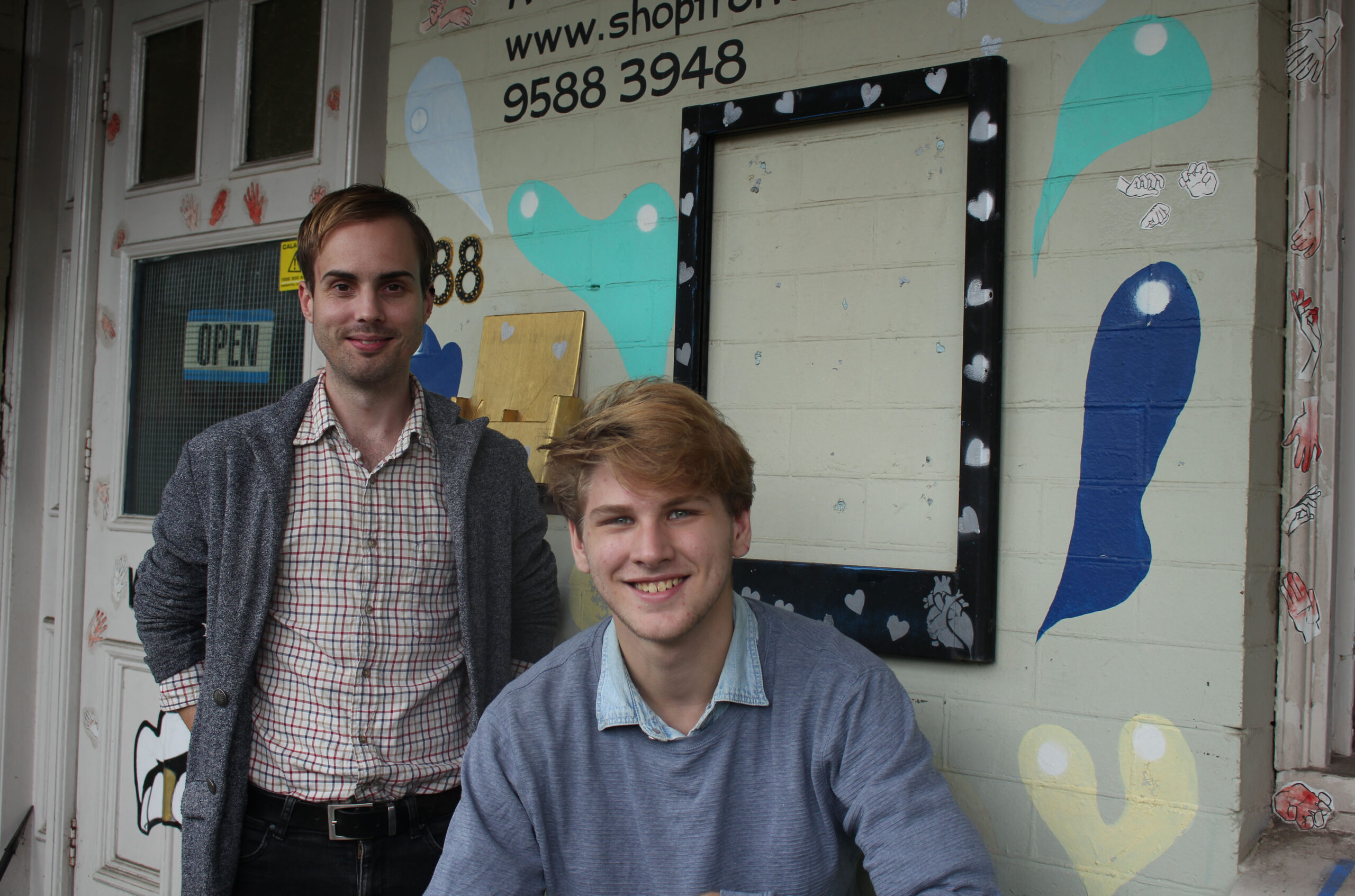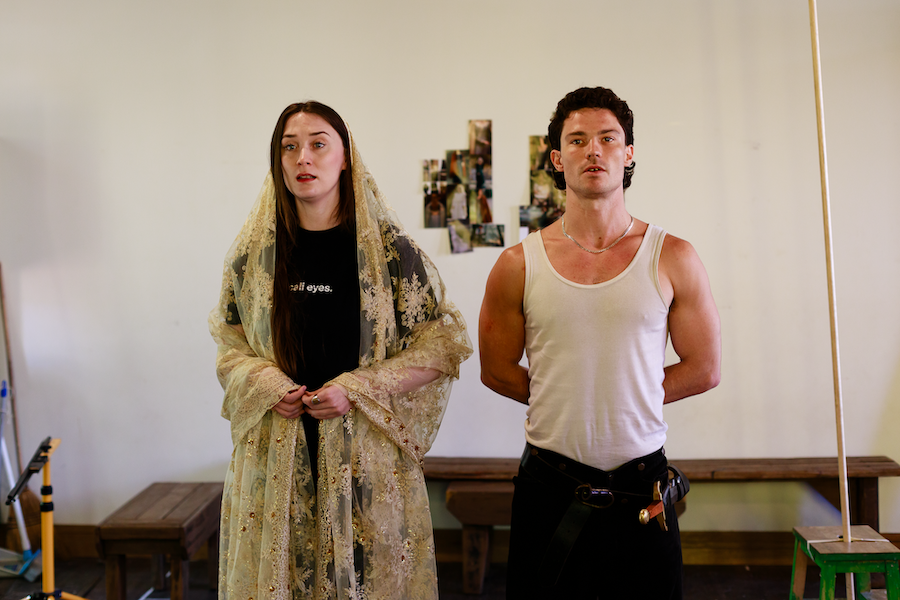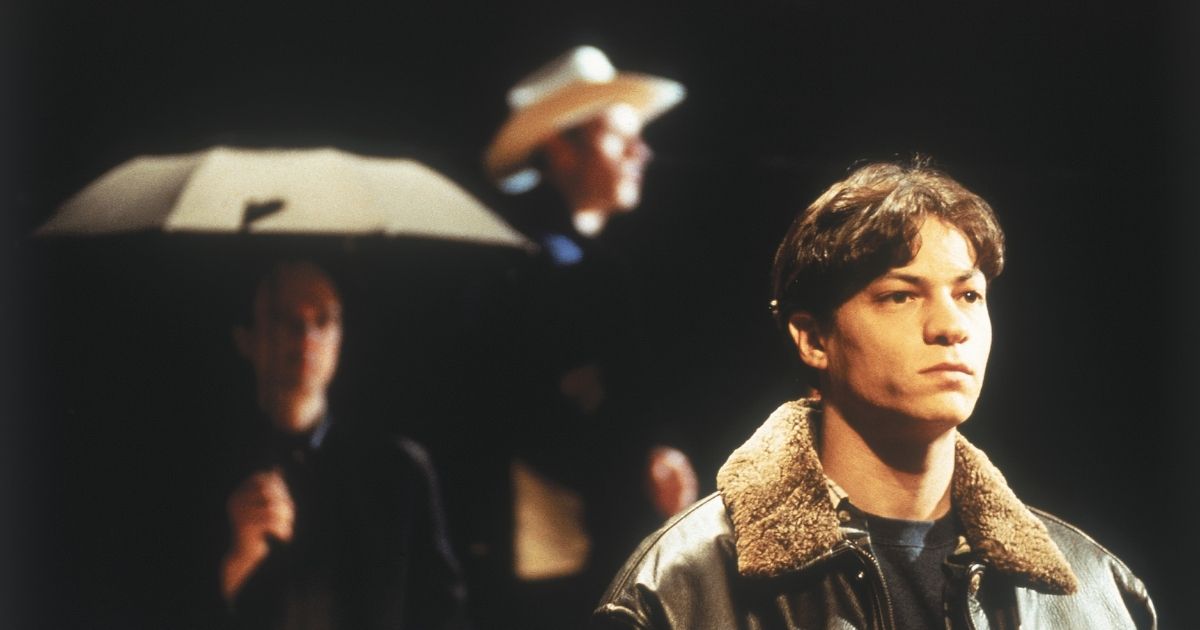
Filling Education’s Creative Void

By Rita Bratovich.
On a street corner in the quiet southern suburb of Carlton stands a vibrant blue building with a large comic style drawing of a mouth covering most of one wall. The converted shop is the home of Shopfront Theatre, a youth and emerging artists cooperative that has been a safe, supportive, nurturing creative spacqe for young people in the region for over 40 years.
The shop, adjoining house and a large adjacent shed are all owned by the cooperative, providing it with a spacious theatre, a number of workshop rooms, film and recording studios, a recreational area, fully functioning kitchen and storage.
Even more impressive is the extensive range and calibre of workshops offered in Shopfront’s program: acting, writing, design, all technical aspects of theatre, film and television production, editing and more. Young people who have a career interest in film and theatre can benefit from Shopfront’s affiliation with other organisations including Australian Theatre for Young People (ATYP), Blacktown Arts Centre and the Way Out West Festival, with more partnerships being sought.
Yet, Shopfront is not exclusively career focused; in fact, it could be argued that is not even its greatest virtue. While government and bureaucratic organisations continue to argue about the value of the arts, Creative Producer at Shopfront, Natalie Rose is quite clear in her mind about the importance of creative facilities to a community:
“It builds confidence, especially for people who don’t really fit in at school…they can come to a new place and they can be whoever they want to be and reinvent themselves and create a whole new circle of support around them… It gives young people a voice and a chance to take ownership of their imagination, their ideas and their creativity.”
Rose has been a facilitator for 16 years and has worked with young people with disabilities as well as kids who who feel marginalised, insecure or have other social issues. Many times, parents will enrol their kids because they lack confidence or are glued to a screen. These kids may start off reluctant but “the change in a term from beginning to end is massive, and the parents will say ‘is he really talking in class?’ and we’ll say ‘yeah – he’s unstoppable!’” says Rose.
The theatre takes students as young as eight and, through their emerging artists program, can continue mentoring up to age 30. Some students have been with the Shopfront for years and have gone on to be facilitators, producers or mentors. Some of the more notable alumni include Paul Capsis, Trevor Ashley and Andrew Upton.
Shopfront also hold less formal gatherings including a movie night once a month and a weekly casual drop in where kids who need friendship and support can come and hang out.
The organisation is far from elite or elusive as they make every effort to integrate and add value.
“We do a lot of work with the community at Shopfront outside of this building. A lot of work with schools, with social workers going out to use art as a tool for social change,” explains Rose.
Nick Atkins, an actor who is currently mentoring at Shopfront, only wishes there had been such a theatre around in his day: “I missed out on Shopfront type of energy when I was young – there was nothing like this around.”
He grew up in the western suburbs which was especially devoid of creative facilities. It wasn’t until he went to university that he became interested in theatre, and because he considers that a late start, Atkins feels he is behind in his creative development.
“You need to make a lot of crap before you make the good stuff and I wish I had started doing that earlier,” he says. As for the wider relevance of entities like Shopfront, Atkins is ardent. He believes they help create cohesion and can be a safe place to work through cultural and social issues.
Facilities like Shopfront provide employment for people in creative industries such as Atkins, who might otherwise need to find unrelated work between acting opportunities. They also fill the creative void that is regrettably growing in educational institutions.
“I think schools really recognise the value of places like Shopfront. They’re often under pressure because of the nature of curriculum and class sizes etc. From my experience, schools have always been aware that they can’t deliver on the quality outcomes that places like this can,” explains Atkins.
Purely and simply, Atkins believes in “art for art’s sake,” insisting that “communities are better when there’s a lot of art in them.”
In his role as mentor, Atkins is currently working with young artist, Zack Lewin, a sixteen year old student who has just written a play which he will direct, produce and stage at the Shopfront in April this year.
For Lewin, Shopfront was an unexpected revelation. At age 12 he was forced by his parents to come to a workshop because his sister had been coming, and because he wasn’t showing interest in anything else. His initial reaction: “I’m not interested in theatre – that’s boring!” eventually transformed into “a real genuine passion for storytelling through film and performance that I never would have discovered otherwise.”
Lewin wrote his play, Star-crossed, then approached the facilitators at Shopfront about having it performed. (The theatre very much encourages students to approach staff with ideas.) He is now working with friends, teachers and professionals to make it happen.
Atkins is being a dramaturg for Lewin, coaching him through writing edits, getting him to understand characters and motivations and assisting him with directing.
“In the past I’ve had trouble with letting go of my power or using it incorrectly – I’m sort of a control freak but at the same time a total free-loader,” admits Lewin. Atkins actually sees both traits as important and is helping Lewin find a balance; and Lewin has come to appreciate the importance of collaboration.
“You can make art by yourself but it won’t be the best it can be.”
In describing how he feels about having his play performed, Lewin really sums up the value of a place like Shopfront:
“It’s a real honour, in a lot of ways. I feel really blessed to be appreciated and given this responsibility and trusted to put something on. I feel quite grateful for it.”
Shopfront Arts Co-Op. 88 Carlton Parade, Carlton. Wisit website shopfront.org.au for program and events.
Star-crossed by Zack Lewin. Apr 20-23. $10-18. Info: shopfront.org.au/star-crossed/









